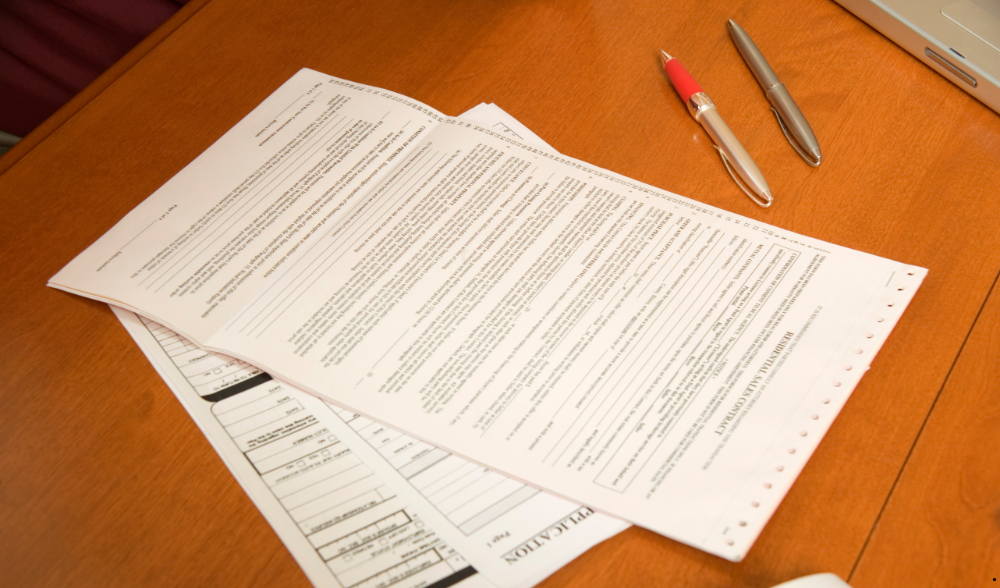Garbage, Scrap Tires and Solid Waste Bond Claims Guide
Estimated Read Time: 6 minutes04-01-2022

Businesses that transport and/or dispose of garbage, scrap tires, or any other solid waste may be required to have a surety bond before they are approved for licensure with the governing regulator.
Depending on what state, city, or county you live in, as well as the details regarding applicable permits or licenses, this surety bond may be referred to under various names such as:
- Solid Waste Disposal Bond
- Solid Waste Hauler Bond
- Solid Waste Transporter Bond
- Waste Tire Hauling Bond
- Waste Tire Disposal Bond
- Scrap Tire Processor Bond
- Transportation of Recyclable Materials Bond
- Garbage Hauler Bond
- Garbage Disposal Bond
Jet Insurance Company provides garbage, scrap tire, and solid waste bonds to act as a financial assurance to the governing regulator (usually your local Public Works or Solid Waste Department) that the business owner will follow the regulations of their permit or license.
Generally speaking, the business owner is responsible for hauling and/or disposing of garbage, scrap tires, recyclables, or any other solid waste properly. If the regulator is forced to clean up and dispose of waste that has been improperly disposed of or abandoned by the licensee, funds from the business owner’s surety bond may be used by the regulator to cover such costs.
As your surety provider, Jet is legally obligated to pay out claims that have been deemed justified. However, one of our main goals is to protect our customers from baseless claims, as well as give you the tools to help ensure that a violation never even happens. So let’s go over some regulations to be followed and what to do should a claim occur.
Steering Clear of a Messy Solid Waste Bond Claim
The regulations you are expected to follow will depend on what state, city, and county you live in, as well as the type of licensure you are applying for. So it is important that you read up on what rules and obligations will be expected of you once officially licensed.
The Jet team has gathered various examples of prohibited acts that apply to businesses that haul and dispose of different solid waste materials. This is not a complete list but includes the most common actions that can lead to a bond claim.
- Failure to pay all licensure or penalty charges due to the governing regulator
- Causing damages to public or personal property (e.g. roads, highways, sidewalks, driveways, etc.)
- Failure to clean up accidental spills on public property
- Abandoning or delivering waste to a prohibited location
- Not properly reporting the quantity of waste collected and/or disposed of
- Improper storage of waste (e.g. lack of fire safety or public health precautions)
- Failure to dispose of waste within regulation (e.g. causing air, ground, or water pollution)
Solid Waste Bond Claim Details
Who Can File a Claim on a Garbage, Scrap Tire, and Other Solid Waste Bond?
Typically, the state regulator is the only party who can file a direct claim on a Solid Waste Bond. However, some Solid Waste Bond’s also protect the public from financial losses. For example, any person who has suffered financial losses due to their personal property being damaged by an Osceola County, Florida garbage/recyclables hauler may pursue civil action which could result in a claim upon the licensee’s Solid Waste Bond.
How Much Bond Coverage Is Provided?

The dollar amount of your surety bond is how much liability is covered by the bond. Solid Waste Bonds typically have a custom set limit. The obligee (governing regulator) will either provide information on what the appropriate limit should be or what it is based on in the applicable statutes, the physical bond form, or your licensure paperwork.
When Can a Claim Be Filed?
A claim may be made for only damages caused during the bond term. The claim window may be extended due to a cancellation provision on the bond form which ranges from 30 to 120 days (whatever is stated on the Solid Waste Bond form).
When a claim can be made has some limitations. It will vary in each jurisdiction, but a claim against a bond must be made within a reasonable time period (usually two years) from the date of the service provided.
So, What Would a Solid Waste Bond Claim Look Like?

Let’s use an example:
Stan owns a solid waste company in Texas and has five transporters under his employment. One of these employees is Michael—he is new to the job and has been having a hard time following the rigorous regulations of transporting and disposing of solid waste and recyclables. Recently, Michael was on the job and accidentally spilled waste onto the roadway. Michael didn’t want to get in trouble with his boss and didn’t have time to clean it up all by himself, so he chose to leave the scene and not report what happened.
Complaint
The Department of Motor Vehicles receives complaints that there is a spill on a DFW Metroplex roadway that needs to be taken care of. The Department sends city workers to clean up the spill, and once completed, the workers report back that damage has been caused to the physical roadway. Due to this, the roadway was arranged to be fixed by the Department as well.
Investigation
The Department has looked into who could have caused such a large solid waste spill and through an investigation discovers that Stan’s company is the one responsible. Notice of the incident is sent to Stan along with a bill for the clean-up and roadway work that was completed by the city.
Stan receives notice from the Department and is sure some kind of mistake has been made. However, after questioning his employees, Michael comes forward with what happened and is let go from the company.
Restitution
Unfortunately for Stan, the Department already used city funds to clean up the spill and fix the damages to the roadway, so he is expected to reimburse the city for these costs. Stan notifies the Department that he is low on funds and is unable to pay what is owed, therefore, the Department pursues penalties upon his company license and files a claim on Stan’s Solid Waste Disposal Bond.
An official claim notice is sent to Stan’s surety provider, Jet. Once received, the Jet team contacts Stan and requests further information and documentation regarding the claim. These details are then used for Jet’s own review and investigation into the alleged license violation.
Due to Stan already admitting guilt to the Department, there is not much Jet can do to defend the actions of his employees, so the claim is deemed justified and paid out (claim payouts never exceed the bond’s limit).
Indemnification
Once the claim has been officially paid out, Stan will then be expected to reimburse Jet for the full amount that was sent to the Texas Department of Motor Vehicles on behalf of his company’s license violation. This is a common practice of all surety providers and is a necessary step to complete the indemnification process. Failure to do so will lead to future difficulties in obtaining a new surety bond, which Stan will need if he plans on continuing his career in the solid waste business.
Laws tend to vary in each state, so the Jet team has provided details regarding past research completed on Solid Waste Bonds within the U.S. and links to legislative documents in the chart below.
| States With Waste Handling Surety Bonds | Legislative Documents |
|---|---|
| Alabama | Code of Alabama |
| Texas | Texas Statutes |
| Florida | Florida Municode |
| Oregon | Oregon Revised Statutes |


